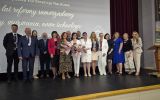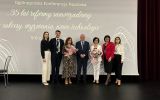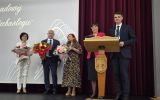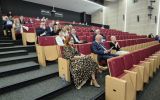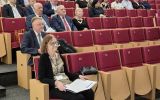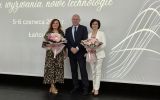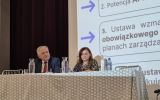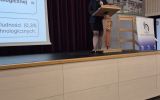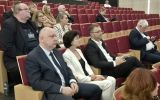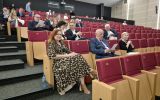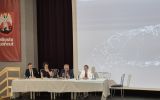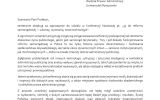News
National Academic Conference “35 Years of Local Government Reform – Successes, Challenges, New Technologies”
On 5th-6th June 2025, the National Academic Conference titled “35 Years of Local Government Reform – Successes, Challenges, New Technologies” took place at the Municipal Cultural Centre in Łańcut. This event was organised on the initiative of the Department of Administrative Law and Proceedings at the Faculty of Law and Administration of the University of Rzeszów and the Faculty of Law and Administration of the University of Radom. The conference responded to the growing need for academic reflection on the state and future of local government in Poland, which, 35 years after its reinstatement in 1990, remains one of the key pillars of a democratic state governed by the rule of law.
The organisers undertook the ambitious task of initiating an in-depth academic discourse dedicated to the transformations that local government has undergone in the face of dynamic social, economic and political changes. The proceedings examined not only the successes and challenges of local government, but also the role of new technologies – including digitalisation and artificial intelligence – in shaping a modern public administration.
The conference attracted great interest from both the academic and local government communities. Participants included representatives of leading academic centres in Poland, representatives of local government at all levels and practitioners of administrative law. It was an excellent opportunity to exchange views, share experiences and reflect on the local government reform process, which – despite its three and a half decades of achievements – remains a living and evolving institutional process.
The conference was held under the honorary patronage of: the Rector of the University of Rzeszów, the Rector of the University of Radom, the Podkarpackie Voivode, the Marshal of the Podkarpackie Voivodeship, the Starosta of Łańcut, the Starosta of Rzeszów, the President of Rzeszów, the Mayor of Łańcut and the President of the Local Government Appeals Board in Rzeszów.
The words of the Rector of the University of Rzeszów, Professor Adam Reich had particular significance for the conference. He expressed his appreciation for the initiative, emphasising that three and a half decades of local government in Poland represent a history of successful decentralisation of public authority, the development of civil society, as well as dynamic technological and institutional changes that have permanently shaped the structure of public administration. Prof. Reich also highlighted the important role of academic research in new technologies, digitalisation and artificial intelligence in the process of modernising the state and its governance structures.
Numerous academic papers were presented during the conference, addressing various aspects of local government, ranging from constitutional, financial and social issues to the challenges of modern administration connected to digital transformation, the use of artificial intelligence in local government activities, crisis management (such as during the COVID-19 pandemic or the war in Ukraine), and the evolution of relations between governmental and local government administration. The analyses also included de lege ferenda proposals aimed at both legislative bodies and local government practitioners.
It is impossible not to mention the significant organisational contribution of Professor Elżbieta Ura, Head of the Department of Administrative Law and Proceedings at the Faculty of Law and Administration of the University of Rzeszów; Dr Joanna Smarż, Associate Professor at the University of Radom, Dean of the Faculty of Law and Administration at the University of Radom; and Dr Bogusław Ulijasz, Associate Professor at the University of Radom. Their commitment and expertise in administrative and local government law contributed to the high substantive and organisational quality of the event.
The conference concluded with the observation that, despite numerous changes and challenges, local government remains one of the most important elements of a democratic state governed by the rule of law. Its further improvement – including the implementation of innovative technologies and digital solutions – should remain the focus of continuous academic reflection and practical cooperation between the academic community and public administration.
